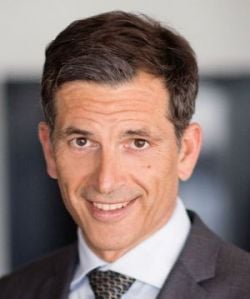
How Finance Can Help Address the Tragedy of the Horizon
By Lionel Martellini, Director, EDHEC-Risk Institute
Financial decisions worldwide are increasingly influenced by scarcity of resources, and climate. The extent of the environmental impact from climate change is still uncertain, but the recent scientific evidence is increasingly worrisome (IPCC, 2018), and many governments are taking decisive steps to avert a catastrophe. As very eloquently put by Mark Carney, Governor of the Bank of England and Chairman of the Financial Stability Board, “Climate change is the tragedy of the horizon. We don’t need an army of actuaries to tell us that the catastrophic impacts of climate change will be felt beyond the traditional horizons of most actors – imposing a cost on future generations that the current generation has no direct incentive to fix.”
Dealing with this tragedy of the horizon, and facilitating the transition towards a low-carbon economy, requires a broad array of financial instruments and innovations that will have far-reaching implications for markets, corporations, intermediaries, and investors.
Given the widespread recognition of climate change as perhaps the greatest source of long-term risk for asset managers and asset owners, EDHEC-Risk Institute has committed to launching a number of (1) research, (2) outreach and (3) educational initiatives in the area of “Sustainable Investment Solutions”, to help improve our global understanding of climate change finance.
In the context of research initiatives, we expect to address several issues of increasing importance, including the efficiency of market pricing of climate risks, climate risks assessment and disclosure for corporations and their impact on credit analysis, financial management decisions affected by climate risks and policies, the design of investment strategies to hedge climate risks and liabilities, as well as the impact of green quantitative easing policies by central banks.
In terms of outreach initiatives, we are hosting a two-day conference on the Finance of Climate Change on December 16 & 17, 2019, at the Palais Brongniart in Paris. The first day of the conference will be an academic gathering organized by EDHEC Business School and co-sponsored by the Journal of Corporate Finance, which also will publish a Special Issue of a subset of the papers presented at the conference (see call for papers). The second day of the conference will include asset managers, asset owners, policymakers, as well as select speakers from EDHEC Business School and EDHEC-Risk Institute (see the preliminary version of the programme).
As for educational initiatives, as sustainable investing gains recognition in the industry, new job opportunities are arising for young graduates with the skill and desire to enhance financial analysis through environmental, as well as social and governance, factors. In this context, as developed by our colleague Laurent Deville, professor of finance at EDHEC Business School and director of our Financial Economics track, in his Interview, EDHEC Business School has engaged in a strategic effort to increasingly include content related to sustainable finance in all of our financial economics programmes. This effort is consistent with our institution’s strategic vision, which is to help develop solutions for global environmental and societal challenges.
One of the major challenges of attracting funds into sustainable investing is its lack of standardisation and clear definitions. Confusion and a lack of coherence has dampened the growing interest in this field, and without a common framework institutional investors will find it difficult to compare and promote relevant funds and financial products. Fortunately, recent discussions have paved the way towards a formal recognition of common practices and terminology related to sustainable investing, and useful attempts have been made to establish a clear and detailed classification system, or taxonomy, for sustainable activities.
Creating a common language for all actors in the financial system will be helpful in promoting the private sector's contributions to long-term sustainable growth. In a paper entitled “Taxonomy of Sustainable Investing – An Investment Process Perspective”, co-authored with Fiona Huang, a finance student at EDHEC Business School, we attempt to contribute to these efforts by providing clarification and a taxonomy from an investment process perspective. Similar to common practices in investment management, the paper initiates the discussion on the commitment to earning social and environmental returns by drawing on the key distinctions between objectives and constraints, as well as discusses how environmental factors can impact both the selection and allocation processes. We hope our paper will provide useful clarification to asset managers and asset owners seeking to promote sustainable investing practices.
More generally, we hope that EDHEC-Risk Institute’s research, outreach and educational initiatives in the area of sustainable investing will help pave the way for a better understanding of the financial implications of climate change risks, and a better understanding of how finance can help address the tragedy of the horizon by ensuring that long-term capital is committed to addressing long-term environmental needs.


